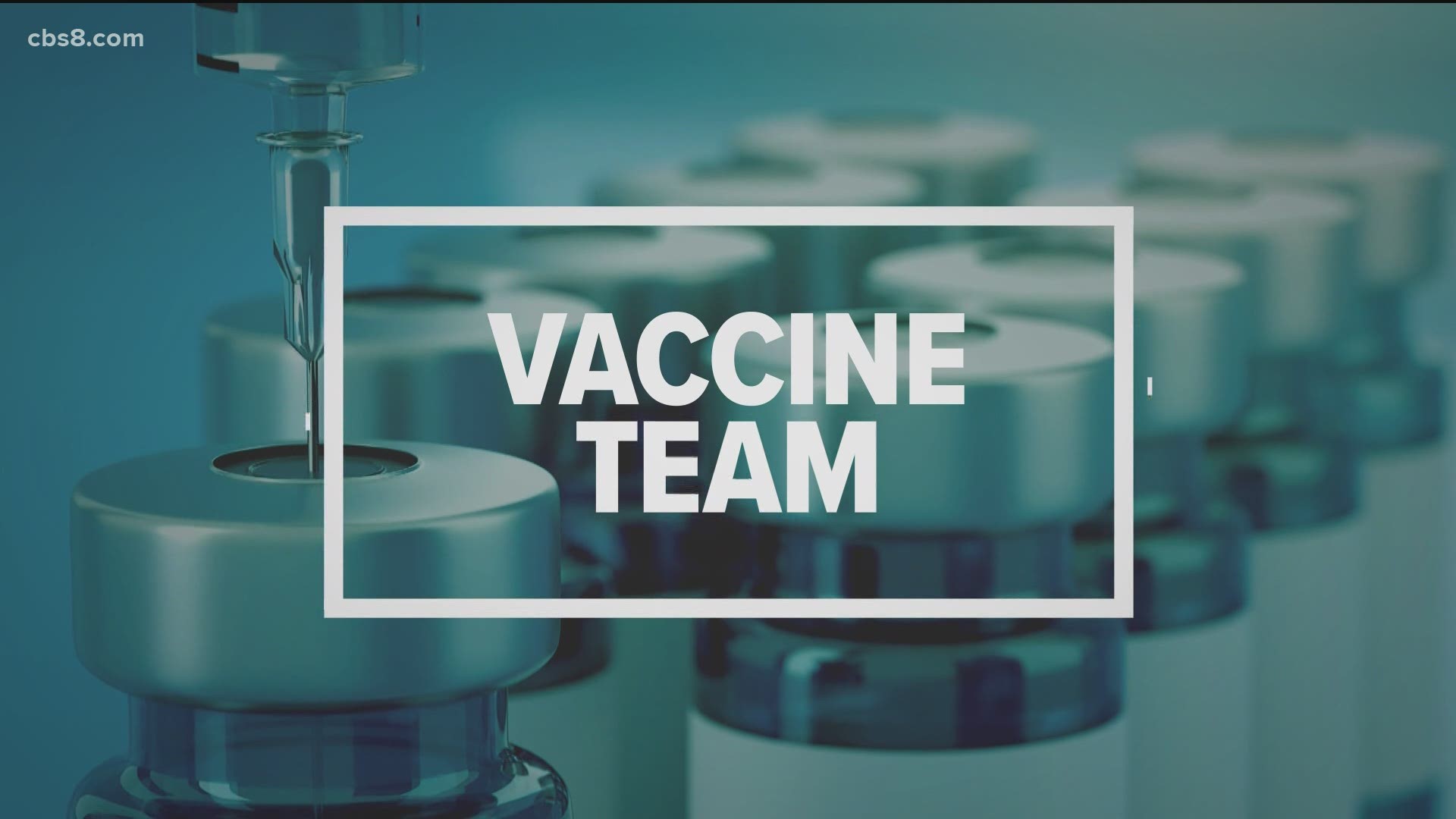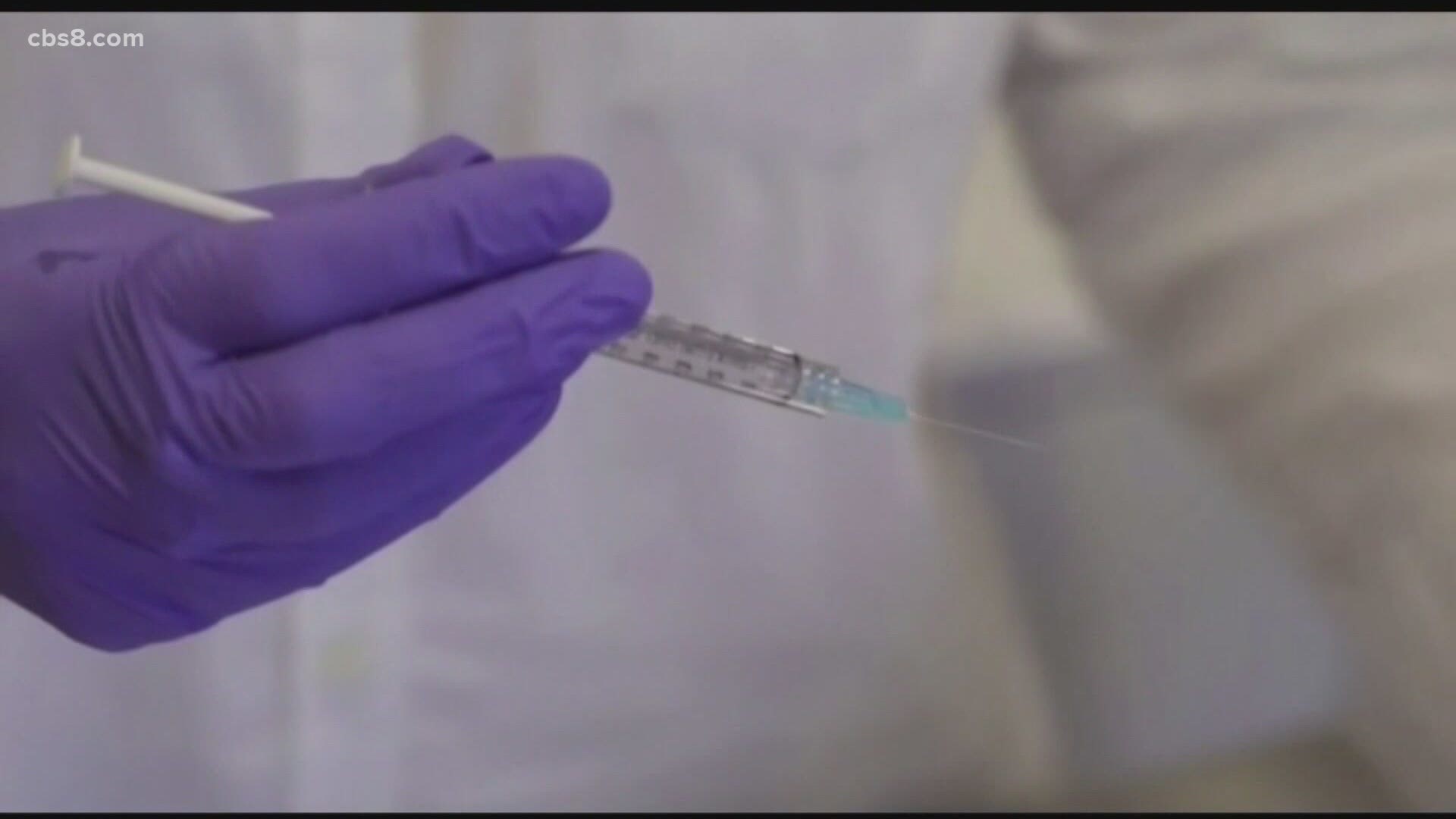SAN DIEGO — San Diego County estimates approximately 47,000 people have received their first dose of the coronavirus vaccine. Hospitals, municipalities, the county and other distribution sites are still vaccinating people from Tier 1A, the highest priority to be vaccinated.
Here are answers to questions frequently submitted to News 8:
How many vaccines have been delivered to San Diego County sites?
Approximately 200,000 doses have been delivered to the county, which is enough to vaccinate 100,000 people since both the Pfizer and Moderna vaccine require two doses.
How many vaccines have been given?
Approximately 47,000 as of Monday morning. The county reported 8,786 were given the week of Dec. 13 and 10,861 the week of Dec. 20.
Why is it hard to estimate the total number of vaccines given?
There are several ways entities can get the vaccine. Some have it delivered directly from the manufacturer, others get an allotment from the county and a few get it from other sources that don’t report to the county’s database.
“There is some work left to do to make sure we have a collaborative and coordinated region in terms of moving forward in this,” said Supervisor Nathan Fletcher.
The county is trying to consolidate the information in the San Diego Immunization Registry. However, some healthcare providers don’t report data to the system. Kaiser, as a multi-county system doesn’t have some data in the system. Federal entities, such as Veteran’s Affairs and the Department of Defense, get their doses from a federal allocation. Tribal nations and prisons also do not report to the SDIR.
Is there a public database to track how many vaccines are known to be given?
Every Tuesday, the county publishes a weekly report on coronavirus called COVID-19 Watch, which includes weekly data on vaccine distribution. It is also working on a dashboard, like its current confirmed cases and “triggers” dashboard.
“There is a little bit of a lag and delay, and we're hoping in the coming week or so to be able to unveil a vaccination dashboard to track how many are coming into the county and how many have been administered,” said Fletcher.
Why aren’t more people being vaccinated? Is there a schedule?
The distribution of the vaccine is up to the sites that receive them. Hospitals, for example, have chosen to stagger vaccinations to avoid large groups of employees being sick should they suffer side effects. Some of the doses are for the second shots that will become due starting this week.
The initial goal was to vaccinate all 166,000 San Diegans who are members of Tier 1A by the end of January. That would require vaccinating about 30,000 people a week, not including second doses.
Is there a risk the vaccines could expire soon?
The vaccines can be safely stored for months. However, once thawed they must be used within a short timeframe. This is one reason why Sharp HealthCare justified vaccinating San Diego police officers before it was their turn. The vaccines had been removed from cold storage and were due to expire within a few hours.
I’m not in Tier 1A. How do I know when it’s my turn?
You will likely receive notice from your medical provider, but there isn’t a system to notify people beyond those in Tier 1A yet. Initial projections estimated Tier 1B won’t begin getting vaccines until next month, at the earliest.
“We will continue to be very transparent with the information we have, the data we have along with sharing when it is appropriate for folks to get it and how they can most easily access that vaccine,” said Fletcher.
How long is the vaccine effective? I heard it’s just three months.
A study published in The New England Journal of Medicine last month found the vaccine is still effective three months after getting the second dose.
“[The vaccine] produced high levels of binding and neutralizing antibodies that declined slightly over time, as expected, but they remained elevated in all participants 3 months after the booster vaccination,” write the study authors.
However, this does not mean it stops being effective after three months. The vaccine is simply too new to know the full effectiveness timeline. Additional studies are ongoing.


